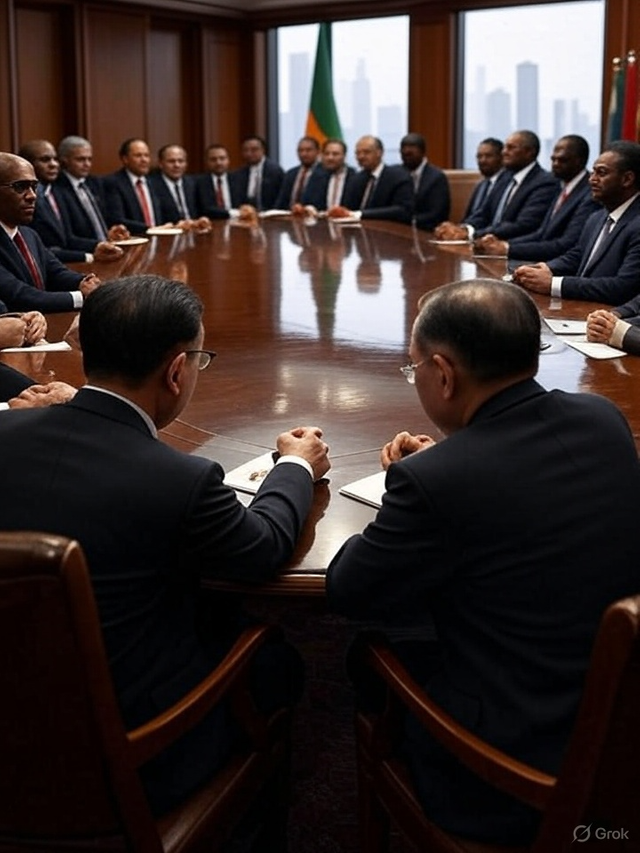BRICS leaders strongly condemn Trump's tariffs and unilateral sanctions.
July 7, 2025 - The BRICS countries - Brazil, Russia, India, China and South Africa - as well as new members Egypt, Ethiopia, Iran and the United Arab Emirates - came together at the 17th BRICS summit in Rio de Janeiro and strongly criticised US President Donald Trump's trade policies. In its joint statement, the "Rio de Janeiro Declaration", the group expressed "grave concern" over the increasing use of unilateral tariffs and non-tariff measures inconsistent with World Trade Organization (WTO) rules.

The declaration explicitly condemns US trade restrictions that threaten to "undermine global trade, disrupt global supply chains and introduce uncertainty into the international economic system". At the summit, held on July 6-7, 2025, BRICS leaders showed solidarity against "indiscriminate" US tariffs, which are set to come into effect from August 1 unless trade agreements are finalised. The leaders warned that such measures could destabilise the global economy and disproportionately harm developing countries. In his speech, Indian Prime Minister Narendra Modi said, "We need a global trading system that is transparent, fair and inclusive. Unilateral measures only increase inequality.
" The BRICS countries also condemned unilateral sanctions, particularly those imposed by the US on countries such as Russia, China and Iran, calling them "illegal and harmful". Russian President Vladimir Putin said these sanctions "harm not only the targeted countries but also other countries of the global south". He emphasised the need to promote alternative financial systems, including the BRICS payment system and trade in local currencies, to reduce dependence on the US dollar. Chinese President Xi Jinping called on BRICS countries to strengthen their trade framework and ensure compliance with WTO rules, calling tariffs "a major threat to global trade".
He proposed that the BRICS New Development Bank (NDB) should be further strengthened to meet the challenges posed by global trade. The BRICS leaders emphasised solidarity to enhance their global economic influence through cooperation in areas such as the digital economy, green technology and artificial intelligence. They also reiterated that the BRICS grouping is committed to improving global governance and promoting multilateralism.